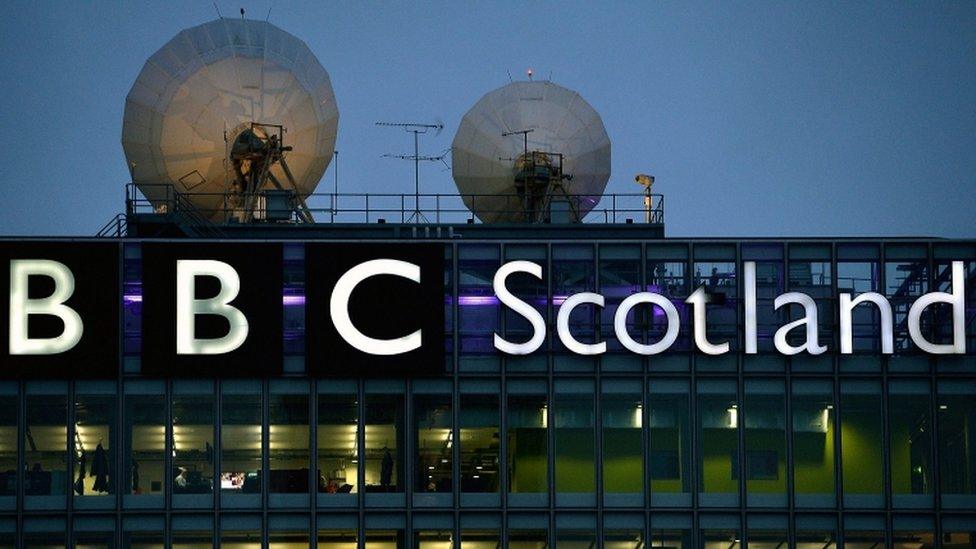New BBC Scotland director in local funding pledge
- Published
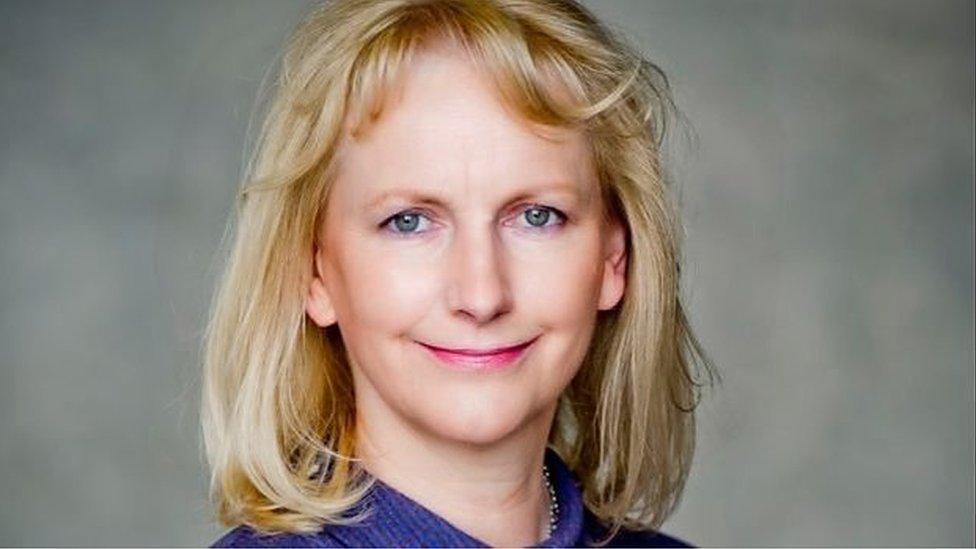
Donalda MacKinnon has taken up the post of director of BBC Scotland
BBC Scotland's new director has pledged to spend more licence fee funds raised north of the border on programming produced in Scotland.
In 2015/16, 55% of licence fee funds raised in Scotland was spent on local and Scottish network content.
Donalda MacKinnon said it was her ambition to see the amount spent "better reflect" what is collected.
The Scottish government has been calling for BBC Scotland to have more power over commissioning and budgets.
Ms MacKinnon recently took over as director, the senior editorial figure for BBC Scotland's output across television, radio and online, after Ken MacQuarrie moved to become director of nations and regions.
In an interview with Good Morning Scotland, she said one of her immediate ambitions was to increase how much of the licence fee money raised in Scotland was spent locally.
'New opportunity'
The BBC's 2015/16 accounts, external showed £320m was raised from the licence fee in Scotland. Of that, £176.5m was spent on local content and Scottish-made BBC network output, 55% of the total raised.
This was a sharp decline from the £203m spend the previous year, which was 63% of the £323m collected. The funds not spent locally go towards BBC programmes developed elsewhere and aired across the UK.
In comparison, 95% of licence fee funds raised in Wales in 2015/16 were spent in Wales - including on network-wide programmes like Doctor Who, Casualty and Crimewatch - with the figure for Northern Ireland standing at 74%.
Ms MacKinnon said: "I have made it very clear that it is my ambition to change that number. The percentage of the licence fee collected in Scotland I think has to reflect better the amount spent in Scotland.
"I don't want to commit to a figure exactly at the moment, but certainly an increase on what is the case that moment, which is 55% of the licence fee.
"I think we have a new opportunity to define exactly what kind of BBC in Scotland audiences expect and the kind of resource it rightly should claim, relative to the amount of licence fee collected in Scotland."
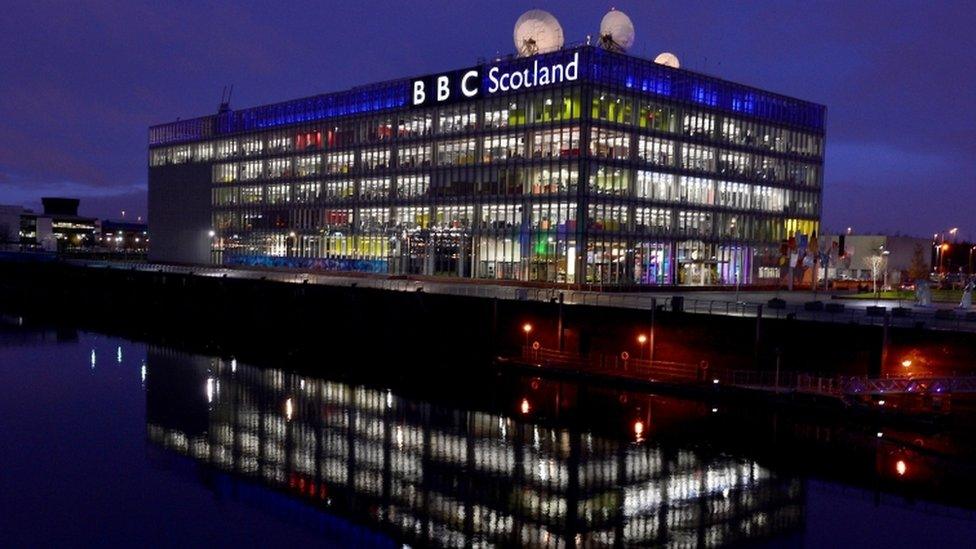
Ms MacKinnon said there had been a "serious commitment" to end the "lift and shift" practice
The new director also pledged to abolish "lift and shift", where programmes traditionally produced elsewhere are moved to Scotland in order to meet quotas.
Holyrood's culture committee issued a report describing this practice as "subverting the spirit of the quota", with MSPs saying this gave them "serious cause for concern".
Ms MacKinnon said this had happened due to a target in 2008 to raise network television productions coming from Scotland from 3% of the total aired to 8.6%. She said she had made a "serious commitment" to see the practice end.
She said: "I understand why that happened early doors, I don't think that should happen any more and we've had a very solid commitment to the effect that that will not happen except in extremis."
'Rebuilding trust'
Ms MacKinnon also said she was targeting an "improvement in appreciation" of BBC Scotland's news output, saying it was "really important" to consolidate public trust in the corporation following events like the 2014 independence referendum.
She said: "We have very successful news output, but there's no doubt that there was a feeling among a significant percentage of the population - not the total population - that trust might need to be rebuilt.
"I think it was proven by research undertaken by the BBC Trust that that we had not breached any impartiality and could not be accused of being biased.
"Did we sometimes get it wrong? Possibly.
"If we get it wrong - and there's no doubt we are all human beings, and we can do - we should put our hands up and say yeah, sorry, we may have got that wrong, but we certainly, as far as I'm concerned, can't be accused of bias."
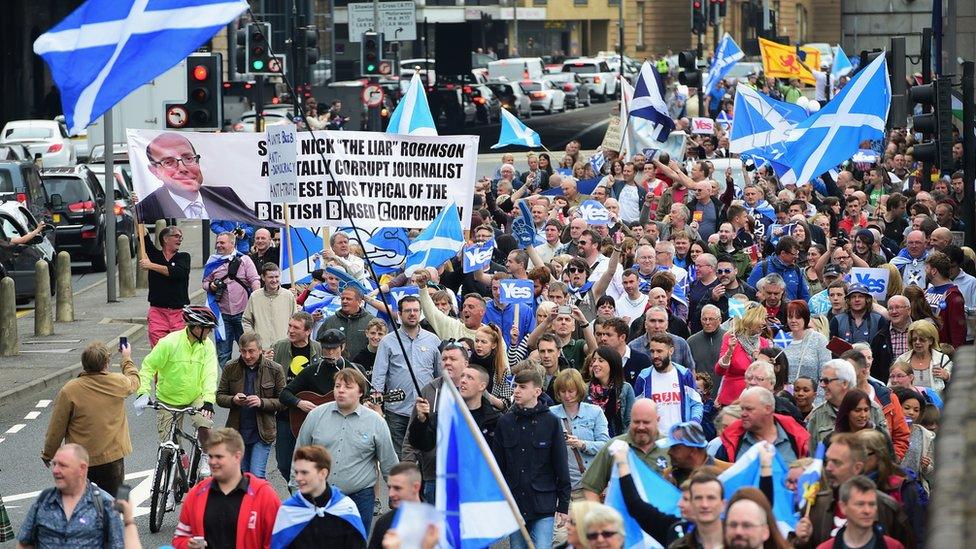
Ms MacKinnon said it was "regrettable" that BBC Scotland was not more open in defending its journalism during the independence campaign
Ms MacKinnon was asked about the case of Nick Robinson who as BBC political editor was the subject of controversy during the independence campaign.
The BBC Trust and Editorial Complaints Unit found that Mr Robinson's assertion that then-First Minister Alex Salmond had not answered a question put to him during a news conference gave a misleading impression.
But it concluded that his report was not intentionally biased and rejected complaints.
Mr Salmond subsequently claimed BBC bias was a "significant factor", external in the outcome of the independence referendum.
Ms MacKinnon said the BBC should be more open about admitting when mistakes are made, while explaining its position and defending its journalism against claims of bias.
She said: "I really do believe that we need to get our narrative right, and we need to be out there a bit more often just explaining some of that.
"It's arguable that had we done that, then the population would have understood better what it is that we're here to do.
"Getting that story out, whether it's from the director general or me or someone else, it's something I will want to address."
The new director said it was "regrettable" that this had not happened more often during the independence referendum.
She said: "I can understand the reasons for the reluctance and reticence to be there, given the tension around the whole debate. But I believe it's really important for us to demonstrate accountability and openness, and to reflect very hard on some of the challenges."
- Published7 December 2016
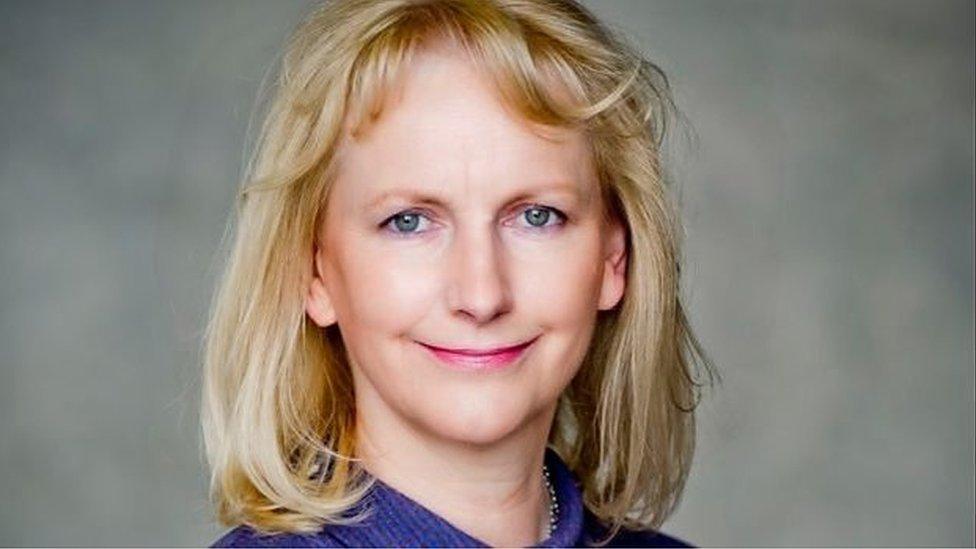
- Published25 September 2016
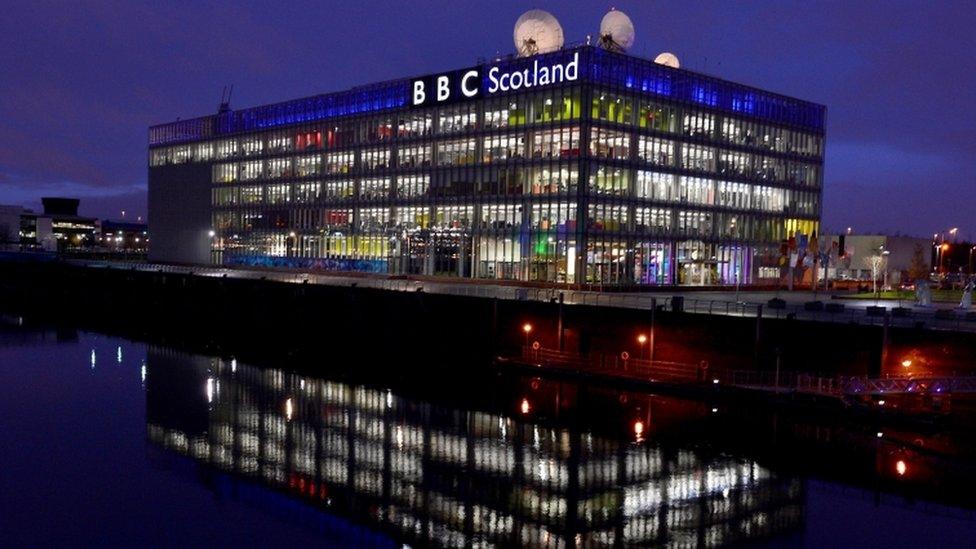
- Published17 February 2016
